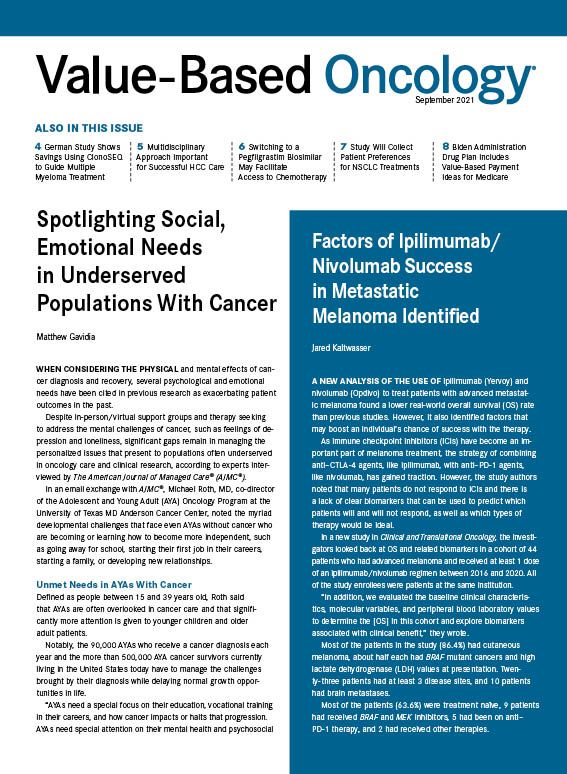- Center on Health Equity & Access
- Clinical
- Health Care Cost
- Health Care Delivery
- Insurance
- Policy
- Technology
- Value-Based Care
Multidisciplinary Approach Important for Successful HCC Care
Hepatocellular carcinoma (HCC) is challenging to diagnose and has an evolving treatment landscape, which makes a multidisciplinary approach to care important to ensure high-quality care and the best patient outcomes.
Hepatocellular carcinoma (HCC) is the fastest-growing cause of cancer-related deaths in the United States, but HCC is challenging to diagnose because clinical presentation varies, and symptoms often appear late in the disease course.
The unique challenges of HCC diagnosis necessitates a multidisciplinary approach to ensure high-quality care and the best patient outcomes, according to a study published in Clinical Liver Disease. Because the majority of HCC cases have a background of cirrhosis, gastroenterologists are pivotal for screening, for instance.
The treatment landscape continues to evolve, and finding the right treatment requires “expertise in the various therapeutic modalities from a number of different specialties, including hepatology, hepatobiliary surgery, transplant surgery, radiation oncology, medical oncology, interventional radiology, and palliative care specialists, among others,” the authors explained.
Although HCC can be cured with liver transplantation, surgical resection, or thermal ablation, nearly 70% of patients are not candidates and need alternative treatment options. A common practice for multidisciplinary care in cancer is to conduct regular meetings, known as multidisciplinary tumor boards (MTBs), to present cases and review relevant treatments. The authors noted that patients discussed at MTBs had improved treatment and better outcomes, including overall survival and a greater likelihood of undergoing liver transplantation.
“Moreover, recent studies have also shown that MTB frequently leads to changes in imaging interpretation, thus impacting potential treatment recommendations,” they added.
Another model of multidisciplinary care is a centralized group clinic model where patients see the appropriate providers concurrently. These appointments can either occur in person (space permitting) or virtually. This approach is patient centered and allows patients to actively participate in the discussion of their care. These clinics have resulted in shorter time to treatment and improved survival.
In addition to treatment benefits, such multidisciplinary approaches have resulted in improved patient satisfaction, specifically related to communication and confidence in their physician, the authors wrote.
There are multiple challenges to effectively implementing successful multidisciplinary care, but they can be successful even in resource-scarce regions, they noted, with one study showing successful implementation in a small community environment. Success of multidisciplinary care is reliant on administrative support, effective leadership, and team dynamics, they added.
“In today’s evolving landscape with newly available cancer treatments readily available, the importance of an integrated multidisciplinary approach to HCC care is vital,” the authors concluded.
Reference
Salgia R, Mendiretta V. The multidisciplinary management of hepatocellular carcinoma. Clin Liver Dis (Hoboken). 2021;17(6):405-408. doi:10.1002/cld.1068

